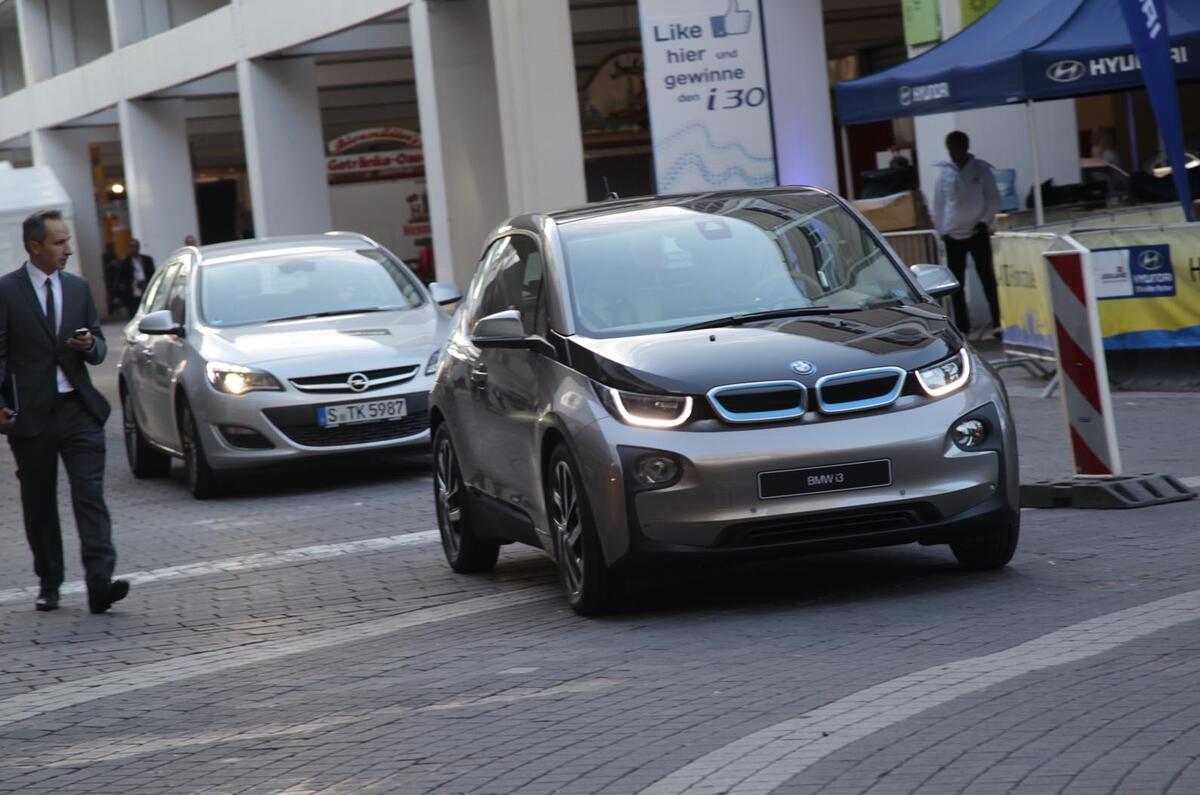It is a very rare occurrence, but just occasionally a manufacturer produces a car and you realise at first glance you’re actually not looking at a mere assemblage of metal, plastic, rubber and oil, but the future.
People must have had this feeling when first looking at the Porsche 901 in 1963, the Range Rover in 1970 or the VW Golf GTi in 1974. In my time on this mag we’ve had the likes of the Mazda MX-5, Ford Focus, Honda NSX and Lexus LS400 – all cars that felt they’d change their part of the world forever, regardless of whether they actually did or not.
I got that feeling once again at Frankfurt motor show, not when looking at any of the cars in the halls, but those doing the hard work outside. I’m talking about the BMW i3, myriad examples of which spent press day flitting silently around the vast expanses of the Frankfurt Exhibition Grounds allowing grateful hacks – our own Steve Cropley included – a few precious moments off our feet.
I’ve been fascinated by the electric car movement ever since I drove a prototype Nissan Leaf around a London Docklands car park many years ago. And while I liked the Leaf enough to help it on its way to the European Car of the Year award and have thought similarly warm things about the Vauxhall Ampera, I’d not seen them as any more than interesting niche models.
The i3 is completely different. You can see how well it stacks up on paper and works in the real world with the little range extender engine option — but that’s not what makes me think it’ll be the true game changer of the electric car movement.
It has a class, a presence, a post-modern appeal that not even the sleek Ampera can match, let alone the improved but still dumpy Leaf. And it has the badge. What’s more it looks far better in real life than it does either in photographs or underneath the artificial lights of a motorshow stand.
Put it this way: I liked and continue to admire cars like the Leaf and Ampera, but always from afar. The difference is I actually want an i3, and for reasons that have little or nothing to do with its powertrain. The phoney war is over: the electric car revolution is on its way, and it’s got a BMW propellor on its nose.





Join the debate
Add your comment
Mine's going to be ordered very soon
I'm going to take one as a company car in March next year. Fast charger at home, and negotiating with employer to have access to a standard socket at work. Savings per month vs my 520d are more than £550 (straight back in my pocket) when I factor everything in. Our old Picasso will be used for long journeys and when I need to carry bigger loads. £550 buys a lot of petrol each month for the Picasso.
Commute is 46 miles return each day, using approx. 45% of the lowest real range and it'll be plugged in each night, so even cold weather and battery life loss will be more than manageable. Going for the 100% electric version.
I noticed on my commute that I arrived around a minute later than my wife while using a Smart diesel vs the 520d after 35 mins of driving. So speed and cost are pretty irrelevant in commuting. £550/month would also go a long way to funding a Ducati Panigale if I wanted an adrenaline rush - maybe a discussion to be had with my wife.
Depreciation
One unspoken problem with all EVs and e-vehicles is re-sale values. Who will buy a 5 year old Tesla or i3 when there will no doubt be vastly superior successors at list prices maybe 50% lower than today's models?
why so much hatred
What is wrong with BMW's past. Ofcourse it did supply engines to the german bombers but it is a German company and the world was at WAR. And how does it make the i3 look bad.